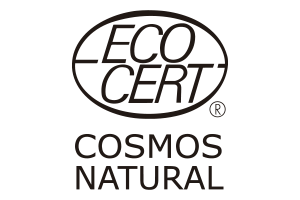
The U.S. Department of Agriculture certifies food or agricultural products that have been produced, according to the USDA organic standards. The standard operations that the producers and retailers use, are required to cycle resources, conserve biodiversity, and preserve ecological balance. The USDA’s National Organic Program develops and enforces the standards for organic crops, livestock, and agricultural products so consumers.

The unified logo of Jaivik Bharat signifies organic food in India, effectively intertwining with all the elements of the environment, in adherence to the National Organic Standards.
Customers should look for the NPOP standards that are implemented under the Agricultural and Processed Food Products Export Development Authority (APEDA), Ministry of Commerce and Industry. NPOP provides a focused and well-directed development of organic agriculture.

The India Organic logo is a certification mark used to identify products that adhere to the National Standards for Organic Production (NSOP) in India. It serves as a visual cue for consumers, ensuring they purchase authentic organic products. The accreditation includes inspection, certification bodies, and the national organic logo to build trust and authenticity of organic products for consumers.

PGS or Participatory Guarantee System is a system of certifying organic products at the local level. This system is focused on local quality assurance systems and certifies producers based on the active participation of stakeholders.
Implemented by the Ministry of Agriculture and Farmer’s Welfare, PGS is a participatory framework where farmers have sound control over the certification process, built on trust, social networks, and knowledge-sharing.
This system provides two types of accreditation:

ECOCERT is an organic certification organization, founded in France in 1991. The ECOCERT COSMOS certification allows organic or natural cosmetics to be commercialized worldwide.
This label offers the surity of environmentally friendly production and processing processes respecting human health.

The European Union's organic agriculture certification gives a coherent visual identity to organic products produced in the EU. This makes it easier for consumers to identify organic products and helps farmers market them across the entire EU. The Organic Agriculture Europe certification applies to agricultural raw materials and Food products. This certification authenticates the product's methods that respect the environment, promote biodiversity, and maintain soil fertility.

PETA or People of the Ethical Treatment of Animals, is an NGO committed to working against the abusive treatment of animals in the business. The PETA cruelty-free and Vegan certification authenticates that the brand does not test its products on animals and isn’t cruel to the animal world. The logo also helps consumers identify Vegan items at a glance while shopping and make purchases that align with their values.

SGS certifies organic products under the National Programme for Organic Productions in India, ensuring compliance with organic standards and traceability in the supply chain.
SGS provides the food industry with audit and certification solutions against a variety of standards that authentic organic production and a safe environment for consumers.

The BRCGS Global Standard for Food Safety specifies the food safety, quality, and operational requirements for food manufacturers and food service organizations to meet current industry expectations legal/compliance obligations and protect consumers. It is recognized globally by retailers, brand owners, and manufacturers as a benchmark for ensuring the safety and integrity of food production.